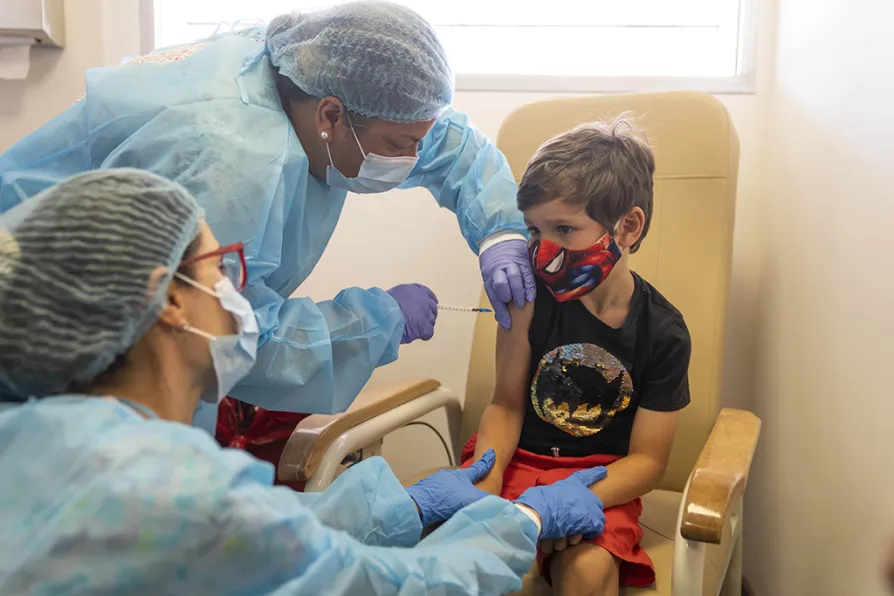By pressuring Mexico to halt oil shipments, Washington is escalating its blockade of Cuba into a direct bid for economic collapse and regime change, argues SEVIM DAGDELEN

 Nurses inoculate a boy against Covid-19 in Uruguay. 'Making sure that the richest nations do the right thing and take all possible steps to get more vaccines into more arms in the global South is the most immediate thing that needs to happen'
Nurses inoculate a boy against Covid-19 in Uruguay. 'Making sure that the richest nations do the right thing and take all possible steps to get more vaccines into more arms in the global South is the most immediate thing that needs to happen'
WHILE the richest nations of the world debate whether or not a fourth dose of the Covid-19 vaccine is required, many people in the global South are yet to receive even their first jab.
Vaccine apartheid is real. This is not a figment of the imagination or some kind of special pleading. Real people are dying because of the hoarding of vaccine doses by the richest nations.
Even when offered the opportunity to fix this by making big pharma, the powerful pharmaceutical companies, share their vaccine patents and technologies, the rich nations choose not to.

Politicians who continue to welcome contracts with US companies without considering the risks and consequences of total dependency in the years to come are undermining the raison d’etre of the NHS, argues Dr JOHN PUNTIS

Climate justice and workers’ rights movements are uniting to make the rich pay for our transition to a green economy, writes assistant general secretary of PCS JOHN MOLONEY, ahead of a major demonstration on September 20

A maverick’s self-inflicted snake bites could unlock breakthrough treatments – but they also reveal deeper tensions between noble scientific curiosity and cold corporate callousness, write ROX MIDDLETON, LIAM SHAW and MIRIAM GAUNTLETT











